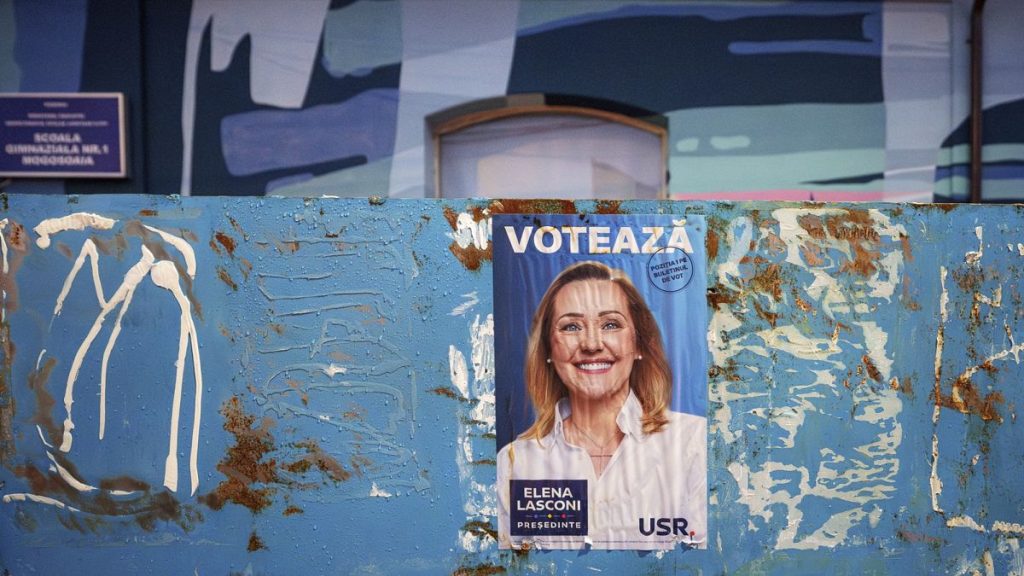Summarize this content to 2000 words in 6 paragraphs
The shock ruling by Romania’s Constitutional Court has been harshly criticised by the two candidates who made it to the second round, but not by the European Commission, which is avoiding comment on the matter.
The European Commission is keeping its distance from the cancellation of Romania’s presidential election by the country’s Constitutional Court, an unprecedented decision taken on grounds of alleged foreign interference.The executive is “leaving it for the Romanian citizens to decide on their destiny and supporting free and fair elections,” Paula Pinho, the Commission’s chief spokesperson, said on Monday during the first press conference after the ruling was issued on Friday.”Those are really the principles underpinning our position at this stage.”The Commission has not announced an inquiry into the ruling itself and made no further statements on the issue. Judicial decisions and national elections are typically the exclusive competence of member states, but a cancelled election is unprecedented within member states.Brussels is however looking into the controversial role that TikTok played in the race and the platform’s potential non-compliance with the Digitial Services Act (DSA), the bloc’s new law to combat disinformation and illegal content in the online world.No formal investigation into TikTok has been announced but the Commission has already sent two requests for information, including one last Friday with an urgent deadline of 24 hours. The Chinese-owned company has complied with both requests and the answers are currently being analysed, a spokesperson told Euronews.The Constitutional Court issued its unanimous verdict to “ensure the fairness and legality of the electoral process”, the judges said in a press release on Friday.The decision annulled the electoral process in its entirety, preventing the second round between Elena Lasconi, a pro-EU liberal, and Călin Georgescu, an independent candidate who has embraced Eurosceptic, Russian-friendly views, that was scheduled for Sunday.The two presidential hopefuls harshly criticised the ruling, with Lasconi calling it “illegal”.”By cancelling democracy, our very freedom is cancelled,” Georgescu later said.The judgment came two days after Romania’s president, Klaus Iohannis, declassified a series of documents compiled by intelligence services that alleged Georgescu’s abrupt rise had not been “a natural outcome” but the result of artificially coordinated action to manipulate and exploit TikTok’s algorithm.The campaign was likely orchestrated by a “state actor” the documents said. Although Russia is not mentioned as the culprit, the agencies detected similarities between an online campaign in Romania and a previous one that Moscow had conducted in Ukraine.According to the Romanian Intelligence Service (SRI), a previously hidden network, mainly operating on TikTok, which had been largely dormant since its creation in 2016, became very active in the two weeks before the first round of the elections. The network’s operators, recruited and coordinated through a channel on the messaging platform Telegram, used methods typical of a state actor’s “mode of operation”, according to documents.The SRI also reported that nearly one million euros were spent in the campaign by an individual supporting Georgescu’s candidacy, with up to €950 paid for a repost. TikTok itself admitted to receiving €362,500 from this person last week, the documents claimed.The revelations sent shockwaves through Romania and beyond, stoking fears the Eastern European country had fallen victim to foreign interference, something that Brussels has tried to counter through several initiatives and strategies. Following the cancellation of the elections, President Iohannis held a phone call with Ursula von der Leyen, the president of the Commission.”The Commission will keep working so that platforms respect their obligations under the Digital Services Act regarding elections in Europe,” she said. “It’s for the Romanian people to decide what’s best for their country, free from foreign interference.”
Keep Reading
Subscribe to Updates
Get the latest creative news from FooBar about art, design and business.
© 2025 Globe Timeline. All Rights Reserved.


